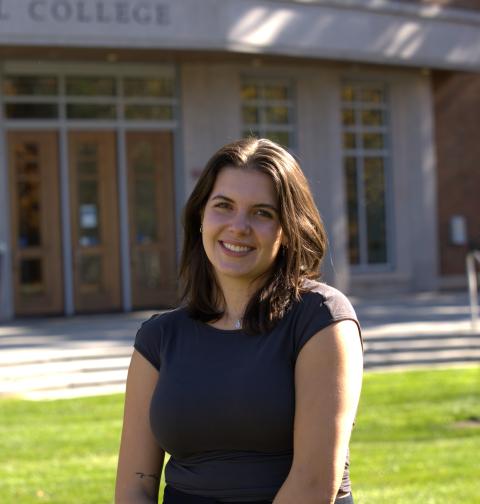An Economics Student’s Approach to Theoretical Research

Research for business and philosophy students looks very different than in the sciences. No need for lab equipment, hazardous materials, or intensive training. This becomes a slippery slope with a lack of physical direction to follow. Theoretical work for a business student? Thinking about stocks was the extent of business theoretics I originally understood. This was until I participated in the Research Experience and Apprenticeship Program (REAP) with an objective to generate a data-based opinion on how we ought to finance higher education. I took a deep look at the democratic system and ideologies, and how the system in America influences the way students finance their education. Note: when brainstorming projects, I wanted something that played to my tangible strengths learned from my coursework, but also a broad topic I had a genuine interest in as to avoid burnout.
Diversity, economic mobility, and investment in the workforce are crucial for fostering economic and social growth within a community. Diversifying student populations based not only on skin color but on socioeconomic background as well is instrumental to dismantling a class structure. As accessibility to higher education decreases with the swelling cost of college, we risk snowballing into a lapse in development for crucial sectors of society. Over time, this may cause gaps in society to escalate, enlarging pre-existing disparities such as income and wealth, employment, and healthcare. Economic disparities may soar. This impact on our communities is what makes research like mine so important.
I completed the analysis portion of my research by examining a diverse portfolio of sources, including fiscal reports and academic reports primarily dated within the 2023 -2024 range. My goal was to apply up-to-date demographics to the philosophy of education. Most sources came from large digital textbooks, which would have been extremely inconvenient to carry around, so the ability to access my information online through digital copies of academic sources or nonfiction works such as Poverty, by Matthew Desmond, was greatly appreciated. Each week I submitted a research report to my mentor via Canva, which covered the material I had synthesized that week. This allowed me to work in different locations, discovering where I enjoyed being most productive (including coffee shops!). Research being so easily accessible also gave me a better understanding of data. I could tuck information away and come back to read it later, or even review a source multiple times, which ultimately made for a better research paper.
What I found made me question more about both my topic and the research process. Writing a combo of an analytical and philosophical paper was a balance of two extremes. On one end, I understood all the data presented, but then I had to ask how? Or why? Unfortunately, the numbers can’t talk back. It was a great opportunity to work with diverse content, including financial reports, firsthand accounts of collegiate planning, and educational articles on democracy and education, as well as on the financial exploitation of universities. I also appreciated the flexibility I had with my methods, arranging my own data in any program I saw fit.
As the summer went on, the overarching question of how higher education ought to be financed became international. I looked at data from institutions abroad and considered their societal norms. Countries with different financial structures and smaller populations can support students more because fewer are attending college in the first place. For example, in Germany, the percentage of students diverted into trade programs is much larger than in the U.S, which cuts back on total college enrollment and there increases available support for individuals attending college.
My synthesis of financial data was interesting as well. I scoured fiscal reports for multiple universities. It was easy to see which institutions spend more time on their reports, and the differences between private and public school reports. With public schools, large portions of their reports consisted of government assisted programs, while private schools utilized endowment funds to support their students.
I concluded that the funding of higher education is propelled by societal norms and expectations placed on incoming students. These include the stereotypes that you will gain monetary worth only after obtaining a four-year degree or be considered an intelligent human only after going into significant financial debt for a diploma. Within America, it is difficult to claim what ought to be done, without offending a number of conflicting interested parties. At the end of the day, funding structures for higher institutions should be reconstructed in a way that provides support and resources to benefit the student, not the institution.
Participating in REAP taught me so much, and I am extremely proud of the written report I produced at the end. Writing intensive classes have become significantly easier and the flow of my writing has improved. As an economics major, this opportunity expanded my tangible skills and critical thinking in ways that a traditional class wouldn’t scratch. I was able to carry this experience into an internship, final papers, and eventually a senior thesis. I look forward to doing more work of this nature and exploring deeper the economic disparity we face with higher education.